As the creation of a short film nears its conclusion, post-production emerges as a critical stage. An often undervalued part of the process, where the film is literally shaped, the edit is integral in crafting a cohesive narrative that fosters an emotional connection with the audience. Given these considerations, the significance of securing a skilled editor cannot be overstated in ensuring the success of your short film.
To underscore the pivotal role of the editor and emphasise the craft’s importance, we’ve welcomed back Alexander Farah, a regular contributor to SotW, to explore his journey into editing, his close collaboration with directors, and the metrics he employs to gauge the success of his work.
Introducing Alexander Farah
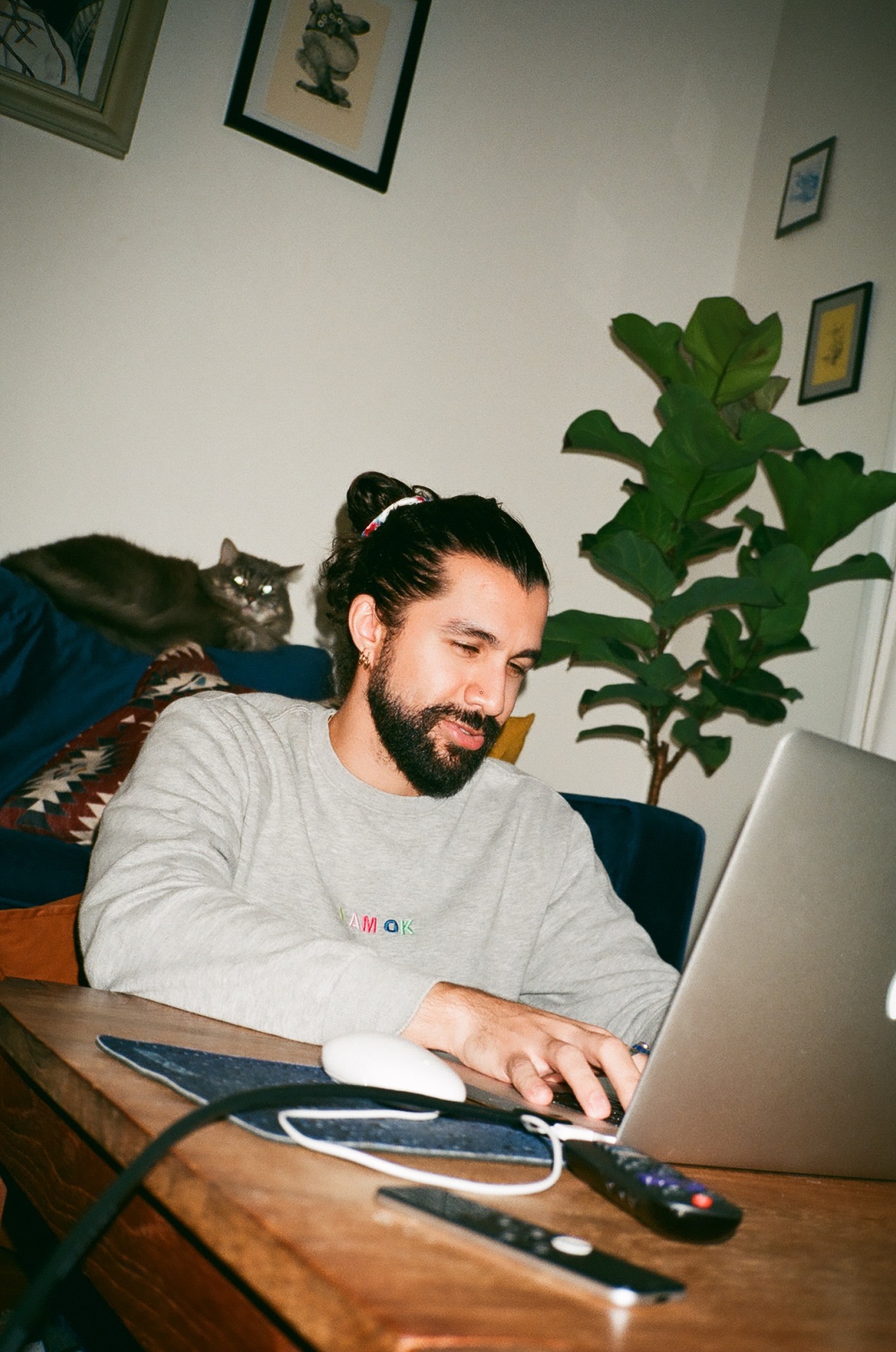 An Afghan-Canadian filmmaker from Vancouver, BC, Alex’s expertise extends beyond directing, as he is a highly sought-after editor, having refined a diverse range of films and commercials. His editorial work has been recognized with six Vimeo staff picks, multiple Canadian Screen Award nominations, and features in esteemed publications like Nowness, D&AD, and Cannes YDA. His longstanding proficiency in editing readily informs his directing, enabling him to extract nuanced performances and capture essential moments with precision.
An Afghan-Canadian filmmaker from Vancouver, BC, Alex’s expertise extends beyond directing, as he is a highly sought-after editor, having refined a diverse range of films and commercials. His editorial work has been recognized with six Vimeo staff picks, multiple Canadian Screen Award nominations, and features in esteemed publications like Nowness, D&AD, and Cannes YDA. His longstanding proficiency in editing readily informs his directing, enabling him to extract nuanced performances and capture essential moments with precision.
Links: Website | Vimeo | IMDB
S/W Films Edited: Sahar (also director), After Sophie, Pretext, Found Me, Lay Me by the Shore
Hi Alexander, welcome back to Short of the Week! While we’ve featured your work as a director (Sahar, Sides.pdf) on SotW a couple of times now, you’ve also been featured as an editor, on the shorts of Minhal Baig and David Findlay. In this interview series, we’re looking to introduce our audience to the different roles involved in bringing a short film to the screen and thought you’d be the perfect person to ask about the role of the editor. So, with that in mind, what was it that attracted you to editing?
Thanks for having me once again, it’s a pleasure to speak with you always. As basic as it might sound, I was introduced to Final Cut 7 through a film production course in my first year of university and was fascinated by the influence of editing. The simplistic act of splicing two clips together in a sequence, made me understand the editor to be a second director of sorts. I attributed a lot of agency to the role. In one of my first assignments, I blended Borat and The Devil Wears Prada to be a romantic comedy, and had a lot of fun doing it. It started to open my mind to how information is presented and re-presented, perhaps similar to the ‘sample culture’ that music has recently been heading in.
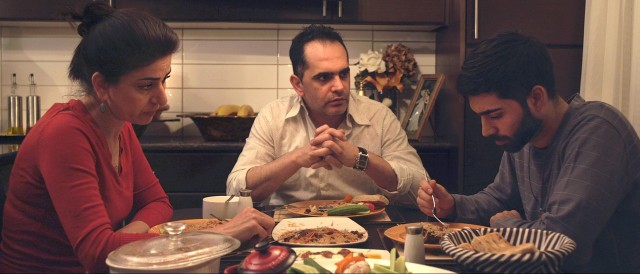
Farah’s first editing credit on a short was on Sahar, a film he directed in 2014.
How did you first get into working on short films, and what is it that attracts you to the format?
By virtue of participating in film courses, short films were often the penultimate project in each class. I’ve always been attracted to the economic format of storytelling in short films, with a soft spot for the ones that span less (story) time whilst honing in on a specific moment. A slice of life. At the time, I tended to have a bit of an aversion towards proof-of-concept short films, and felt more connected with storytellers who embraced and celebrated the short film format, rather than those who felt boxed in it because they hadn’t had the resources to create a feature, for example. Today, however, I’m understanding that proof-of-concepts are a little more prevalent, and certainly a significant part of ‘playing the game.’
I just mentioned a few of the directors you’ve previously worked with and your list of editor credits is an impressive one – how does your involvement with these projects come about, and is there something you usually look for when deciding which projects you want to work on?
To an extent, I’ve been fortunate enough to surf through projects off word-of-mouth, with folks seeing my work and then contacting me. I’ve recently taken it upon myself to expand my circle and reach out to directors whose work I’ve really been moved by – at the very least, to offer nice and/or encouraging words. Those are always nice to hear, as a filmmaker. Though when approached with a project, I look for: a director to be passionate and committed, in addition to the story feeling lived-in and ~real~ (I know we throw this word around a lot).
I then try to envision what I could bring to the project – how my own experiences (life and film) could supplement this already-strong script and/or team behind it. Sometimes it’s a sensibility you can explain; other times it’s more guttural and intuitive. I think editing is a very intuitive act, which always makes me feel insecure about mentoring or teaching others, I always opt out for the prescriptive “sit behind me and watch what I do” kind of lesson.
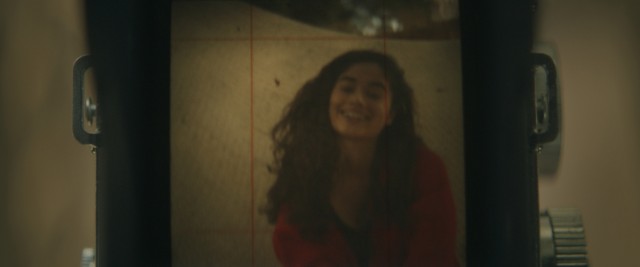
Farah has collaborated with S/W regular Minhal Baig, including editing her 2017 short After Sophie
Let’s talk about your process for a bit, what editing system do you usually use and why?
I started on Final Cut 7. Moved to Premiere Pro. Rarely DaVinci. All to say, though, I may be one of the least-technically-adept editors around and things move so fast, I could benefit from more research to streamline workflows more efficiently. Especially when AI will takeover my role in the next few years.
From that first edit, to the final cut, can you talk a little about how you shape a film alongside the director and the rest of the post-production team. How much back and forth does this usually involve and how important are the lines of communication here?
Every director and film has been pretty unique. Some want to be in the room for 90% of the time, others 50%, and some even 0%. I like to be left on my own for a bit initially to really soak in the footage, performances, story, goals of the edit, etc. After a rough cut, I prefer to slowly start working closer with the director as we shape and sculpt the edit, while entertaining new, sometimes unexpected ways of re-presenting the story, which can happen more often than not, when scenes were dropped on the day, for example.
On these independent projects I’ve worked on, it’s often me and the director right up until the finish line. It’s usually up to them when they’d like to include their producer(s) and seek feedback from their peer group, but generally speaking, I feel the most in-cahoots with the director up until picture lock. After that, it’s your standard hand-over to colour, sound, and visual effects (when applicable).
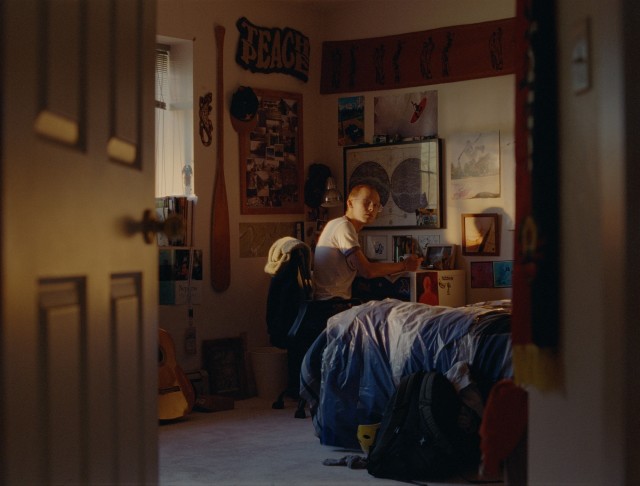
Farah has also collaborated with S/W regular David Findlay, editing his shorts Found Me & Lay Me by the Shore
Measuring the success of a short film has always been something of interest to us here at Short of the Week, how do you, as an editor, evaluate your work on a project?
This is a bit tough to answer. Not because it’s challenging to think of, moreso frustrating to confront. Until now, I would say it’s been festival play that is the currency of success on a short film. Never quantity, always quality. Where it’s premiering, where it’s traveled. The reason that it is frustrating is obvious: it’s a tiny group of programmers at each of these top-tier festivals that offer the stamp-of-approval/validation that so many of us die for, in our work.
Obviously, tons of fantastic films are privy to missing the boat and not being programmed, but there is certainly a level of prestige and admiration we so closely attribute to the filmmakers who are consistently screening at the “big 6,” as they say. Suffice to say though, this is something I wrestle with a lot and am still navigating.
How has working on short films helped you hone your craft as an editor? And has your work as an editor, working with the aforementioned filmmakers, influenced your approach to directing?
It’s helped me have empathy towards directors I work with – being gentle about axing performances, restructuring scenes, reformatting certain portions of the story. I like to think I’m able to have a more sincere connection with the directors I’ve worked with. It’s also interesting, even exhilarating, to work on films that I would otherwise not write myself. To be able to have a hand in crafting a piece of work that is compelling and thought provoking, but not one whose creative genesis I was a part of, is an informative and insightful part of exploring filmmaking.
I believe it’s also influenced my approach to directing – sometimes I can gain intel on what worked, what did not work, what to embrace, what to avoid. Even on a technical level; formats, lenses, aspect ratios – I get to see a lot of them ‘in action’ and am able to recall, more readily, what certain choices have yielded in different projects.
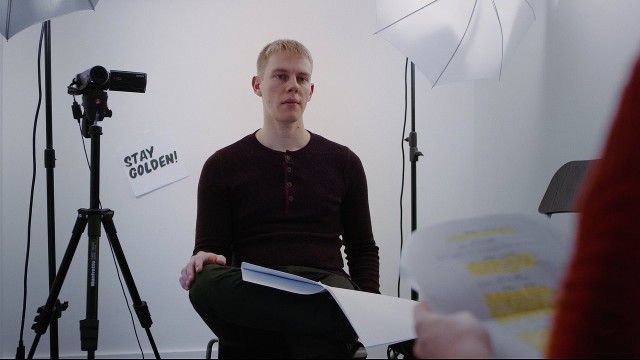
Farah also often edits his own directorial work, including 2018 short Sides.pdf
As a director and an editor you must know the short film arena very well. So, from your experiences, what would you say is currently the biggest challenge in making short films?
Financing. As I’ve come to understand, there’s rarely a return on investment, and so hunting down the money (or investors) always feels risky. And with grants, it feels like time spans long – to apply and hear back, it’s inching more and more towards making a feature these days, haha. Maybe that’s the point, though.
For aspiring editors, what’s the one piece of advice you would give them to help them get a foothold in the industry? What’s the best route to take to get into editing?
Consume and study other films. Films that you would describe as a reason you got into this bizarre and unpredictable industry! Editing and making a living can be very challenging, I’ve realized. Like many parts of filmmaking, patience is a key player. In order to make a living, I think editors are encouraged to pick a lane and stay in it, which becomes quite frustrating if you want to figure out what you want to do.
If you’re starting out, try to stay open to all sorts of editing – commercial, film, webseries, genre – see what sticks (and what doesn’t), and try to slowly build a network of like-minded filmmakers who are on the ‘come-up’ in the same way as you are – where everyone has similar stakes and is fuelling off that passion.
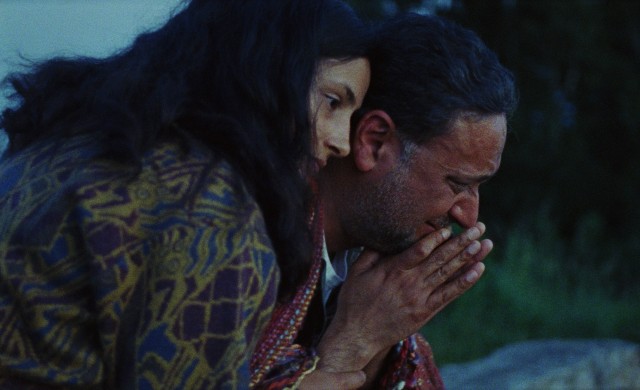
Farah is also known for his work on music videos – including this one for Desirée Dawson track Meet You At The Light which won awards at SXSW 2022
What are you currently working on?
There are lots of half-open doors right now, as an editor and director, among such different paths. I’m trying to remain open and patient to see what pans out for the next while. In the meantime, I’m slowly chipping away in post-production for a short film I wrote and directed late 2023, eager to put it together and see how it plays out for the upcoming year.
 Rob Munday
Rob Munday